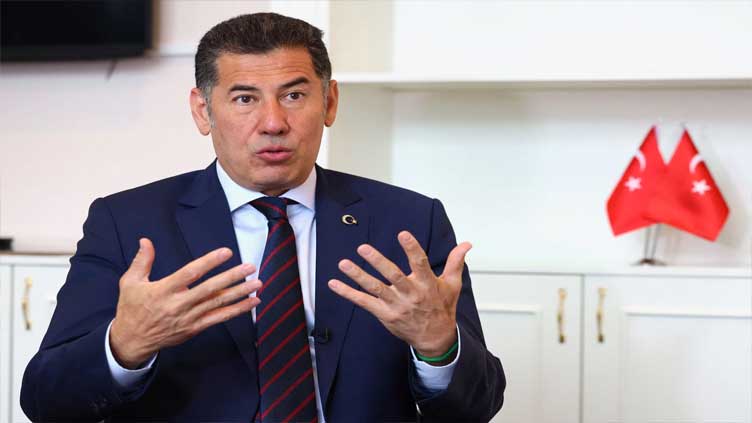For Turkiye runoff, potential kingmaker draws red line at concessions to Kurds

World
For Turkiye runoff, potential kingmaker draws red line at concessions to Kurds
ANKARA (Reuters) - Sinan Ogan, Turkiye's nationalist presidential candidate who finished third in Sunday's election, said he could only support main opposition candidate Kemal Kilicdaroglu in the runoff if he agrees to offer no concessions to a pro-Kurdish party.
Ogan won 5.2% in Sunday's first round of the presidential election, emerging as a potential kingmaker after the May 28 runoff vote. President Tayyip Erdogan, who led with 49.5% of the vote on Sunday, and Kilicdaroglu, who won some 45%, will take part in the runoff.
"We will consult with our voter base for our decision in the runoff. But we already made clear that the fight against terrorism and sending refugees back are our red lines," Ogan, who took 5.2% of the initial vote, told Reuters in an interview on Monday.
Ogan, 55, a former academic, took part in the first round of the presidential election as the candidate of ATA, an alliance of Turkish ultra-nationalist parties led by the Victory Party, which is known for its anti-immigrant stance.
Ogan said his goal was to remove two mainly Kurdish parties from Turkiye's "political equation" and bolster Turkish nationalists and secularists.
"And the election results showed that we succeeded in this," he said.
The pro-Kurdish HDP has endorsed Kilicdaroglu in the presidential election, while the Kurdish-Islamist Huda-Par backs Erdogan.
Ogan said he had not yet met Erdogan or Kilicdaroglu since Sunday's vote but signalled that he would be open for negotiation "based on their principles".
"For example, we could sign a protocol with Nation Alliance (to endorse Kilicdaroglu) to make clear that they would not give any concessions to HDP. It's that simple," he said.
Ogan entered parliament in 2011 with the Turkish nationalist MHP. He launched an unsuccessful bid for the MHP leadership in 2015 and was later expelled from the party.
Ogan said Sunday's election results showed that Turkiye's main opposition has been unable to gain enough public support despite massive earthquakes that hit southeast Turkiye in February.
"Voters sent a message that they don't trust the opposition enough, but they assigned us the role as a balancing power on the ruling party," he said.

